

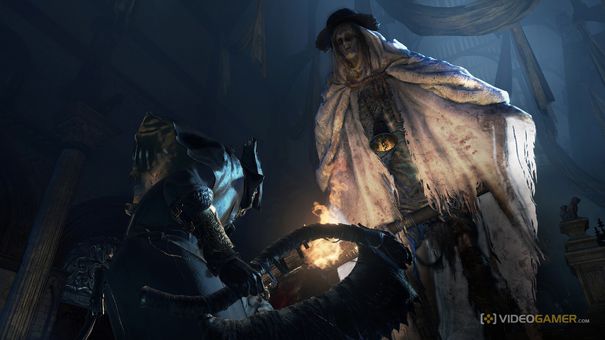

Bloodborne, then. It's finally out after what seems like either a) thousands of years of waiting (tormented, allegedly, by Dark Souls II's existence) if you're a Souls superfan or b) a short-ish wait, if you're a real person with real responsibilities. Either way, you can buy it right now. And when you do, you may be surprised by how...easy it all feels to play.
Wait. Back up. Put the comment down. I'm not saying it's easy easy, like, say, Megamind Ultimate Showdown, or winding up Liverpool fans. But Bloodborne, especially after Demon's and Dark Souls, feels like it's a lot more accommodating to both fans and die-hard Souls haters alike. So much so that it's got me thinking that Bloodborne could, with a bit of luck, the wind, and 70 million dollars of advertising behind it, be the game that helps the series escape its (much-courted) ultra-hardcore base and be played – and enjoyed – by a broader audience.
If this sounds stupid to you then congratulations, you are probably right. Bloodborne isn't going to sell 10 million copies: it is still very inaccessible in a lot of ways. Death still abounds. That this is as designed, and fundamental to the experience, is often overlooked. Frustration is commonplace elsewhere, however, especially when you've died a few times and just want to get back to where you were. It feels like a nightmarish, never-ending exam, if the punishment for not being able to show your working out was having your head cut off and being made to do it all again.
But Bloodborne's combat has changed, and to such a dramatic degree that it's easy to see players picking it up and not being immediately turned off by it. In Demon's and Dark Souls, the early hours (some would even say the early-middle hours) were an exercise in confusion: you're a stranger in a strange land, and in said strange land everyone is trying to kill you, rather than, say, offer you in for tea and compliment your blouse.
A bewildering array of stats, classes, weapons, people to talk to, and routes were on offer previously, in Dark Souls especially. Bloodborne dials this back, in its early going at least. Like Demon's Souls' first castle, it's fairly obvious where to go and what to do. It's also a lot easier to pick a starting weapon, and figure out how to use it effectively. The game gives you a clear choice, and after that it's up to you to make it all work. You're encouraged to pick a style and stick with it, rather than constantly changing your setup.
The difference this makes is enormous. Rather than spending the early hours searching for a good enough shield, or a good enough sword, or even just something approaching good enough, here choices have narrowed. The net result, however, is that the game opens up for a lot of people.
Take the opening of Dark Souls, for example, with its multiple paths. Do you go down into the graveyard, where death (without having the Morning Star) surely awaits? Or go up towards the Undead Burg, where a slightly less frustrating death surely awaits? In Bloodborne, the path is clearer, more defined, with the back streets of Central Yarnham existing as essentially a corridor of enemies for you to take out, to farm blood from, and to learn just how the combat works.
Removing the dependence on the shield – and quickening your character's movement – is key to Bloodborne's renewed appeal. The 'hide and poke' approach of previous entries is gone, replaced with pivots, dashes, rolls, and backwards steps. It was possible to do most of these before, but the ease with which you can now pull these moves off is startling in comparison. Often, I've heard Souls criticised by non-fans for being 'clunky' or 'slow'. While I don't believe this to be the case, I can see what they mean. It's a series that used to, when new to it least, reward patience above all, a wait and see approach, a quick jab and then a raised shield, circling foes, waiting for the backstab.
Not anymore. You leap in and out of affairs gracefully, from the word go, mixing athleticism with violence. You have more stamina, or at least seem to. It's more immediately gratifying: the presence of groups of foes is meant to encourage you to be somewhere near the middle, smashing them up before darting out to relative safety. The introduction of the gun seems ridiculous, but it evolves the Souls design, rewarding head-on encounters rather than tactical stand-offs, an 'in' to those who want fast-paced action. Essentially, it now appeals to people other than Souls fans.
Whether this will all be enough to win over players who have either given up on Souls, or have been put off by the overbearing (and frankly over-egged) marketing of the previous games remains to be seen. But put it this way: if Bloodborne's changes are enough to convince ardent hater of the series Dave Scammell to buy it, then it must be doing something right. It's a game that can now be appreciated by most players: more refined in its systems, clearer in your goals, while still retaining a respectable difficulty and that dream-like adventuring of before. Combine this with a huge marketing push and it being a high-profile (and high-quality) exclusive title, if there was any Souls game that was going to win more people over, it's this one.
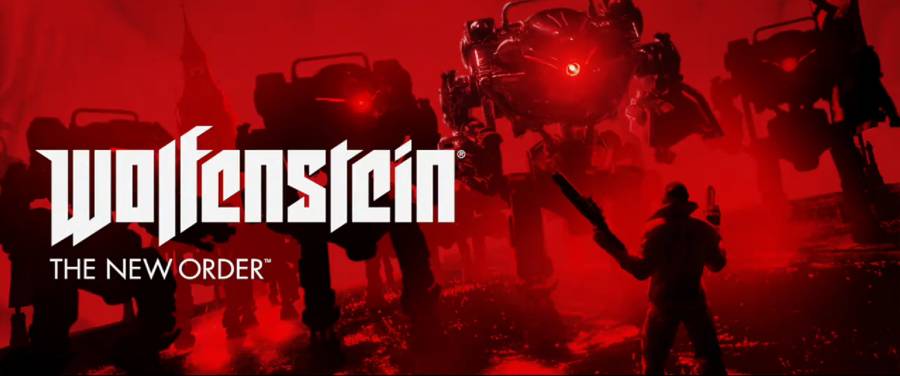
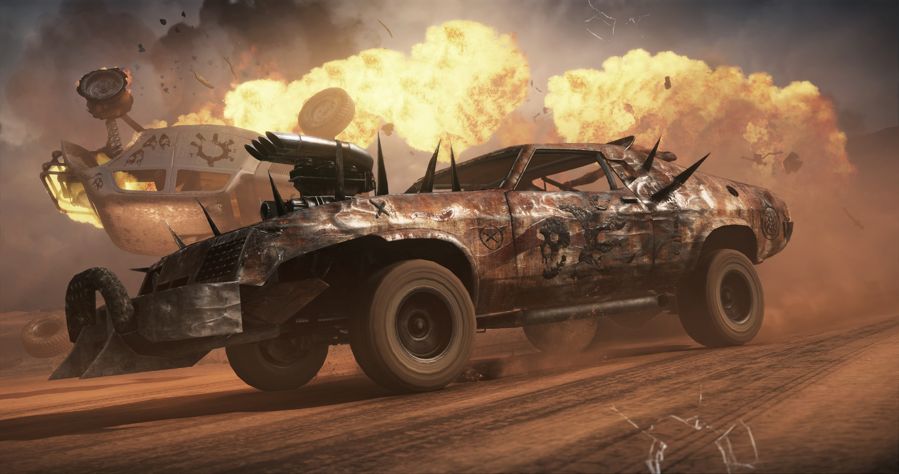
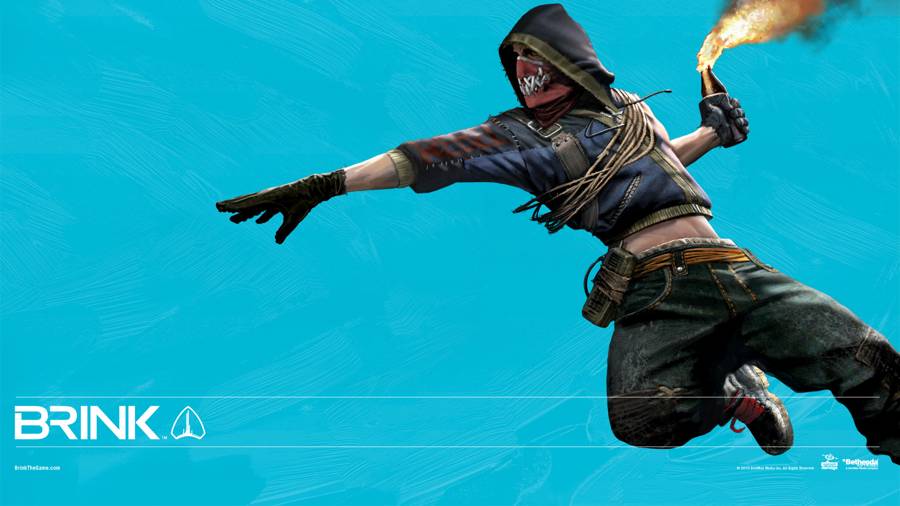
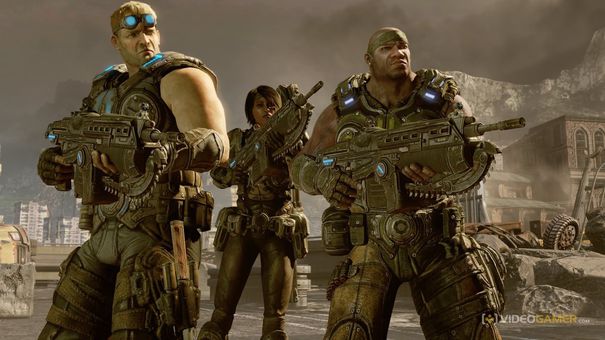
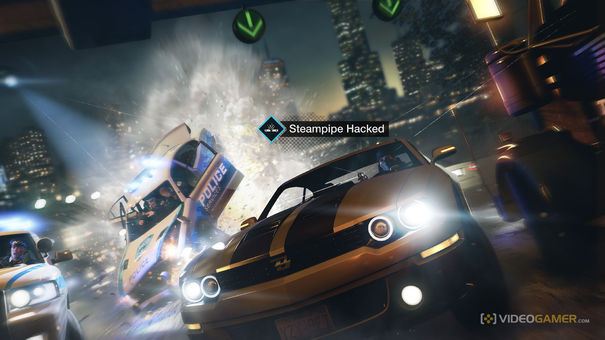 7 Game Delays That Didnt Prove Fatal
7 Game Delays That Didnt Prove Fatal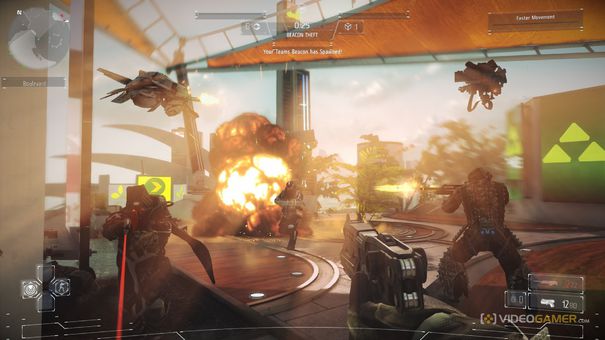 Killzone: Shadow Fall Review
Killzone: Shadow Fall Review The Sims 4 – Skills Guide
The Sims 4 – Skills Guide A New Bar Is Set: Beer Pairing and Review for The Witcher 3: Wild Hunt
A New Bar Is Set: Beer Pairing and Review for The Witcher 3: Wild Hunt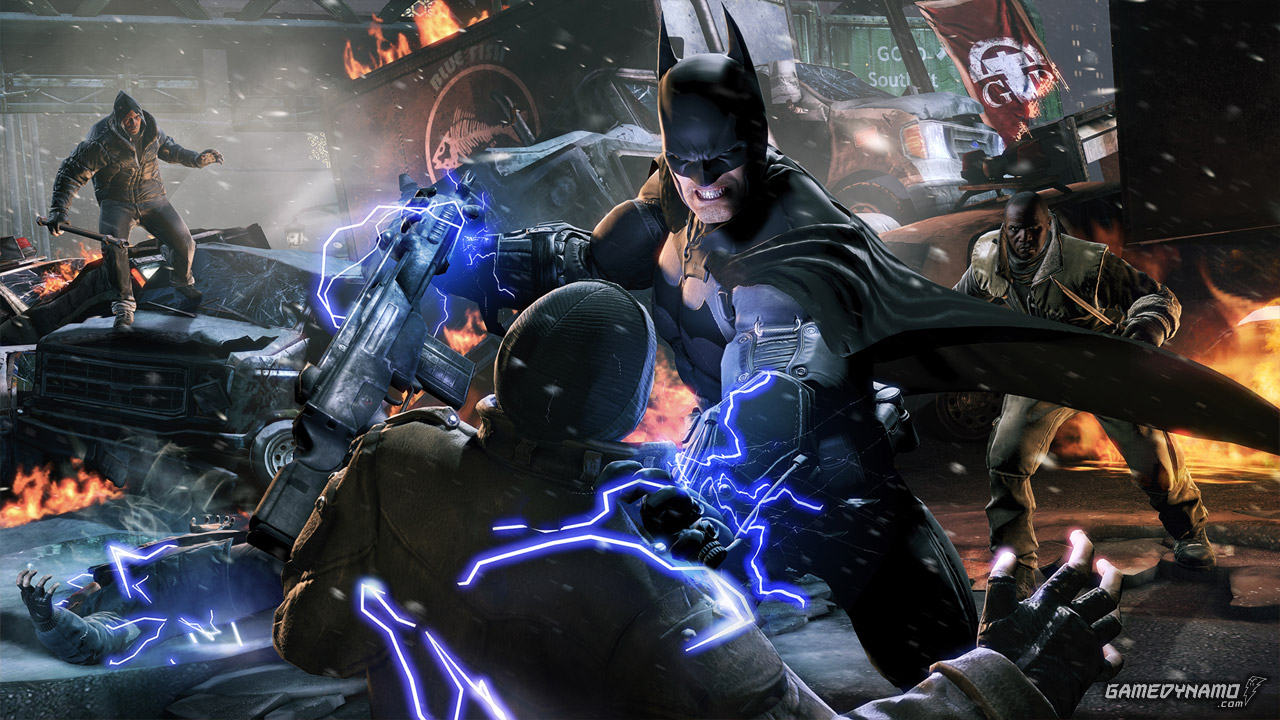 Batman: Arkham Origins - Easter Eggs and Exploits Guide
Batman: Arkham Origins - Easter Eggs and Exploits Guide